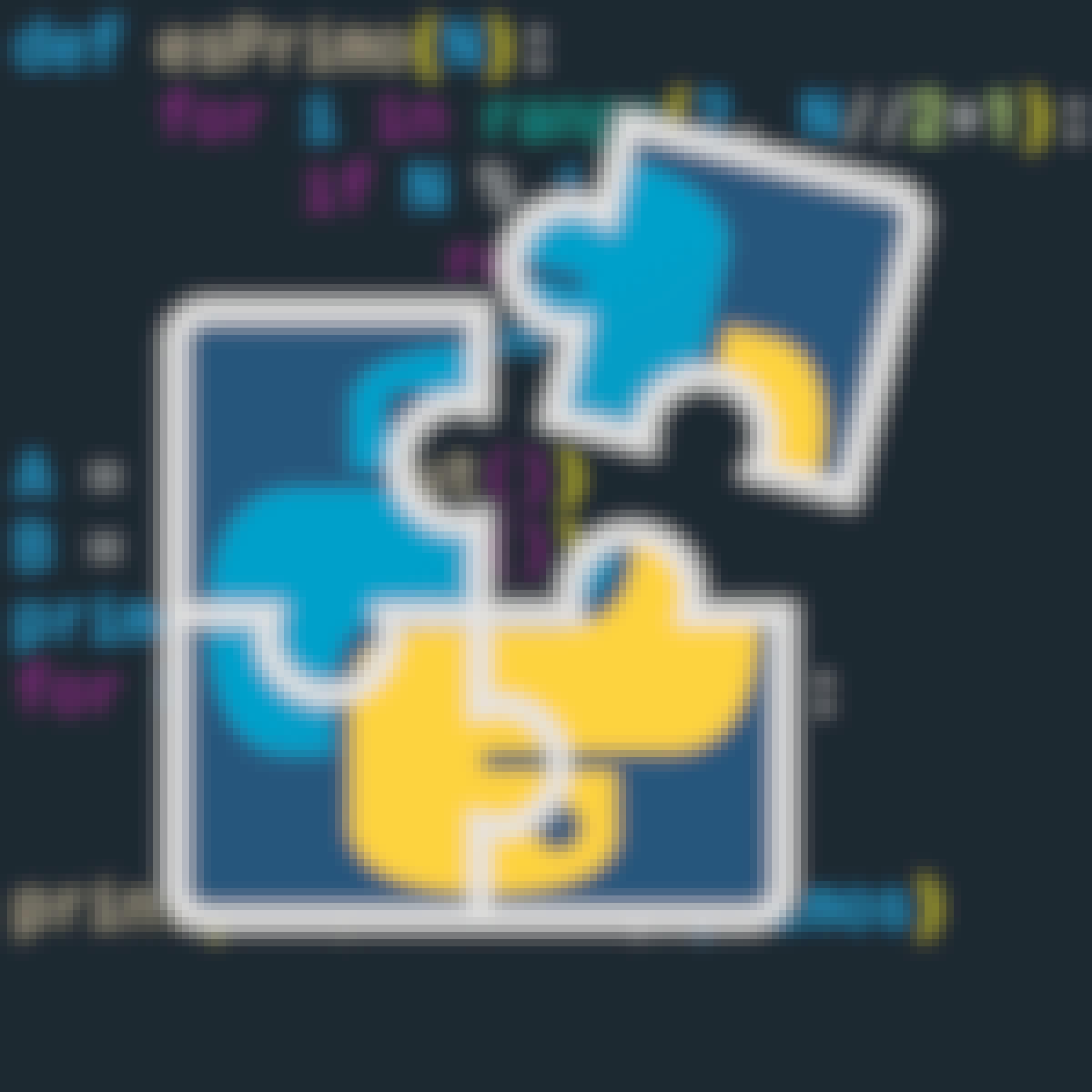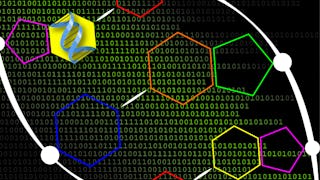Filter by
SubjectRequired
LanguageRequired
The language used throughout the course, in both instruction and assessments.
Learning ProductRequired
LevelRequired
DurationRequired
SkillsRequired
SubtitlesRequired
EducatorRequired
Explore the Computational Finance Course Catalog
 Status: New
Status: NewUniversidad Nacional de Colombia
Skills you'll gain: Programming Principles, Debugging, Computational Thinking, Computer Programming, Algorithms, Program Development, Computational Logic, Python Programming, Integrated Development Environments, Development Environment, Software Testing
 Status: Free Trial
Status: Free TrialJohns Hopkins University
Skills you'll gain: Bioinformatics, Data Science, Molecular Biology, Data Analysis, Programming Principles, Computer Science, Statistical Analysis, Computational Thinking, Big Data, Software Engineering, Algorithms, Biology
 Status: Free Trial
Status: Free TrialSkills you'll gain: Blockchain, FinTech, Cryptography, Design, Emerging Technologies, Stakeholder Management, Distributed Computing, Data Integrity, Financial Services, Public Key Cryptography Standards (PKCS), Innovation, Governance
 Status: New
Status: NewSkills you'll gain: Pseudocode, Programming Principles, Software Visualization, Computational Logic, Debugging, Computer Programming, Graphical Tools
 Status: Free Trial
Status: Free TrialIndian School of Business
Skills you'll gain: Financial Trading, Securities Trading, Performance Measurement, Technical Analysis, Market Trend, Portfolio Management, Performance Metric, Backlogs, Market Data, Risk Analysis, Market Dynamics
 Status: Free Trial
Status: Free TrialNew York Institute of Finance
Skills you'll gain: Financial Market, Market Trend, Market Dynamics, Market Analysis, Supplier Management, Supply Chain Management, Risk Modeling, Supply Chain, FinTech, Financial Services, Finance, Commercial Banking, Banking, Corporate Finance, Investments
 Status: NewStatus: Free Trial
Status: NewStatus: Free TrialStarweaver
Skills you'll gain: Revenue Management, Customer experience strategy (CX), Service Design, Design Thinking, Change Management, Capital Expenditure, Financial Statement Analysis, Hospitality Management, Cost Control, Hospitality, Social Media Marketing, Process Mapping, Key Performance Indicators (KPIs), Social Media, Social Media Management, Digital Media Strategy, Content Creation, Search Engine Optimization, Innovation, Hotels and Accommodations
 Status: New
Status: NewSkills you'll gain: Data Structures, Graph Theory, Algorithms, Computational Thinking, Javascript, Programming Principles, Object Oriented Programming (OOP), Debugging, Computer Science
 Status: Free Trial
Status: Free TrialUniversity of Illinois Urbana-Champaign
Skills you'll gain: Mergers & Acquisitions, Private Equity, Investment Banking, Financial Statement Analysis, Business Valuation, Financial Forecasting, Financial Analysis, Capital Markets, Financial Modeling, Corporate Accounting, Price Negotiation, Financial Accounting, Corporate Tax, Accounting, Income Statement, Balance Sheet, Investments, Corporate Strategy, Financial Management, Corporate Finance
 Status: New
Status: NewTecnológico de Monterrey
Skills you'll gain: Agile Methodology, User Centered Design, Education Software and Technology, Entrepreneurship, Emerging Technologies, Market Research, Solution Design, Innovation, Creative Problem-Solving, Market Analysis, Entrepreneurial Finance, Law, Regulation, and Compliance, Intellectual Property, Business Modeling, Scalability, Growth Strategies
 Status: New
Status: NewHeriot-Watt University
Skills you'll gain: Object Oriented Programming (OOP), Java, Java Programming, Computer Programming, Programming Principles, Software Development
 Status: Free
Status: FreeCoursera Project Network
Skills you'll gain: Risk Analysis, Google Sheets, Financial Analysis, Quantitative Research, Spreadsheet Software, Statistical Analysis, Statistics, Securities (Finance), Probability & Statistics
Computational Finance learners also search
In summary, here are 10 of our most popular computational finance courses
- Programación con Python, nivel básico: Universidad Nacional de Colombia
- Introduction to Genomic Technologies: Johns Hopkins University
- Introduction to Blockchain for Financial Services: INSEAD
- Fundamentals of Programming Using Flowchart and Pseudocode: Packt
- Advanced Trading Algorithms: Indian School of Business
- Supply Chain Finance Market and Fintech Ecosystem: New York Institute of Finance
- Strategic Leadership in Hospitality: Starweaver
- 70+ JavaScript Challenges - Data Structures and Algorithms: Packt
- Mergers and Acquisitions: University of Illinois Urbana-Champaign
- El arte de innovar: Emprendimiento en Educación: Tecnológico de Monterrey










